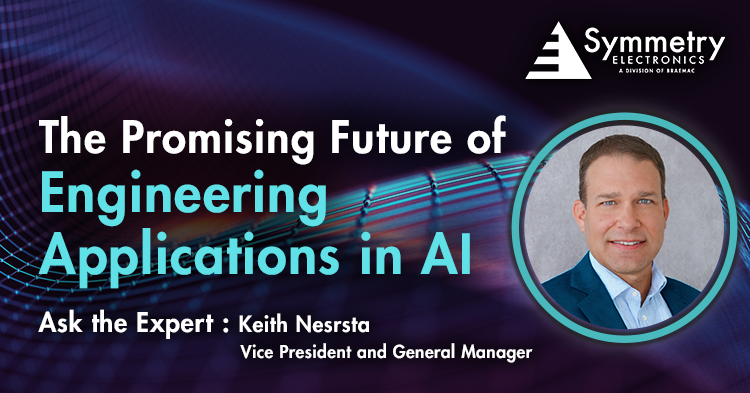The Promising Future of Artificial Intelligence in Engineering Applications
Insights | 19-08-2024 | By Jack Pollard
Keith Nesrsta, Vice President and General Manager of Symmetry Electronics, shares his perspective on how Artificial Intelligence (AI) is transforming the engineering industry.

In early 2022, a colleague introduced me to OpenAI and the world of generative Artificial Intelligence (AI). For the first time, it felt like we were fully harnessing AI, a tool that is now revolutionising the engineering world in numerous ways. It is not only transforming applications and solutions across all engineering disciplines but also their design processes.
AI advancements span areas such as intelligent design and simulations, predictive maintenance, autonomous systems, quality control and inspections, and environmental impact assessment. Its reach leads to enhanced safety, efficiency, and sustainability that was previously unattainable. The future of AI in engineering holds exciting possibilities.
The AI Evolution
Today’s technological revolution actually began as early as the 1950s with the development of electronic data storage and leveraging the use of intelligent machines to perform mathematical functions. In the 1970s, movies like Star Wars showcased what scientists and engineers envisioned as possible with advancing technology. AI, essentially computers performing what are considered to be human-like activities, has only accelerated in its development and sophistication over the last half-century. In recent years, we have seen more advancements in AI than those associated with the invention of the Internet.
AI and Big Data
Big Data, a key component to the advancement in AI, emerged from the increasing ability to store vast amounts of data digitally. The most obvious example of AI’s progress is the evolution of Internet search engines since the late 1990s. Companies like Google, Microsoft, and Alibaba have leveraged Big Data to provide content that accurately matches the search keywords. This evolved into a more effective approach–tuning the advertisements on a search page based on the user’s past search history. Now, data comes from multiple sources, offering more efficient results.
To continue reading, click here.
🧠 Want to understand how we got here? From Alan Turing to ChatGPT, our in-depth feature on the history of AI traces the key breakthroughs that shaped artificial intelligence as we know it today.

